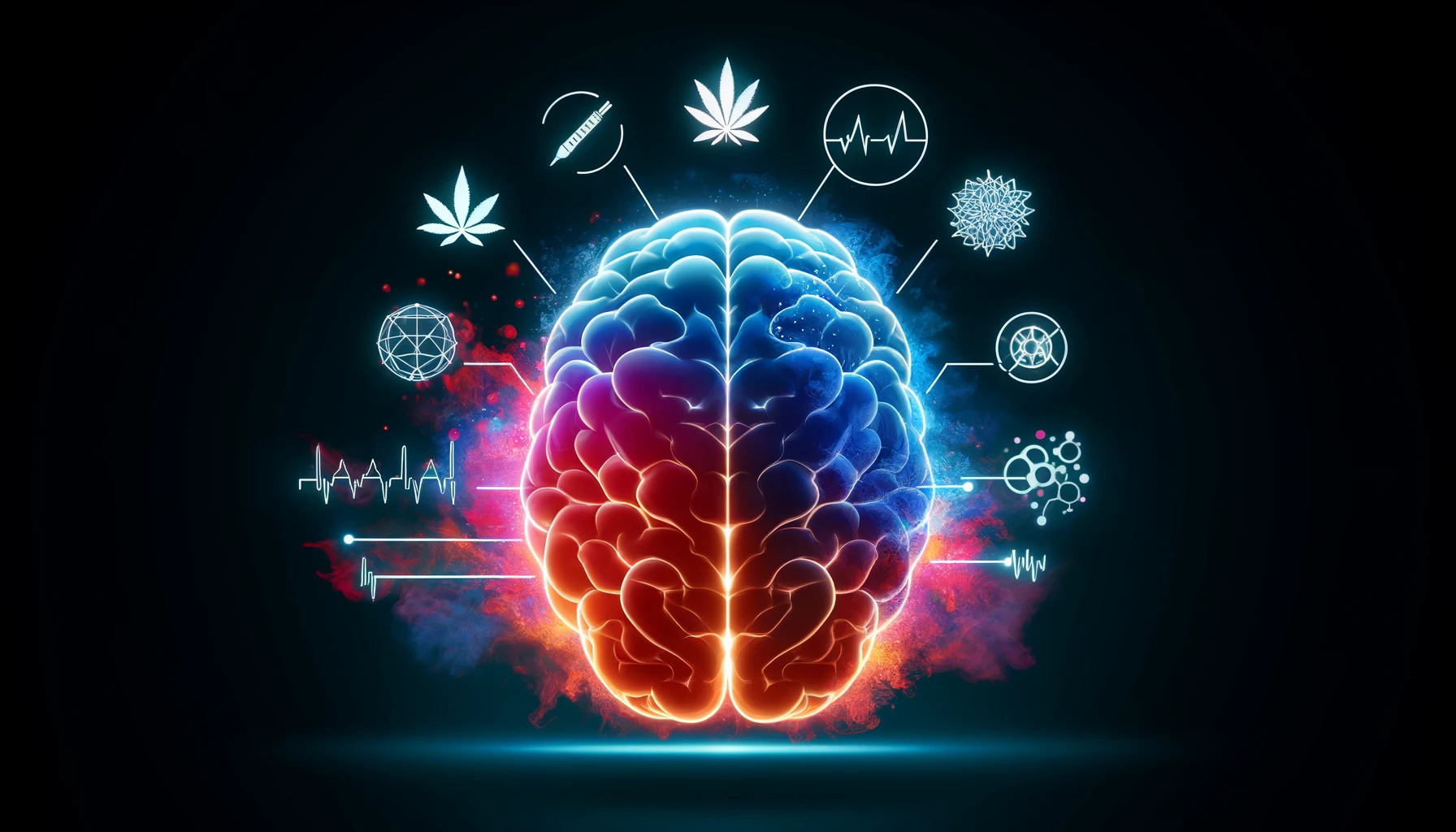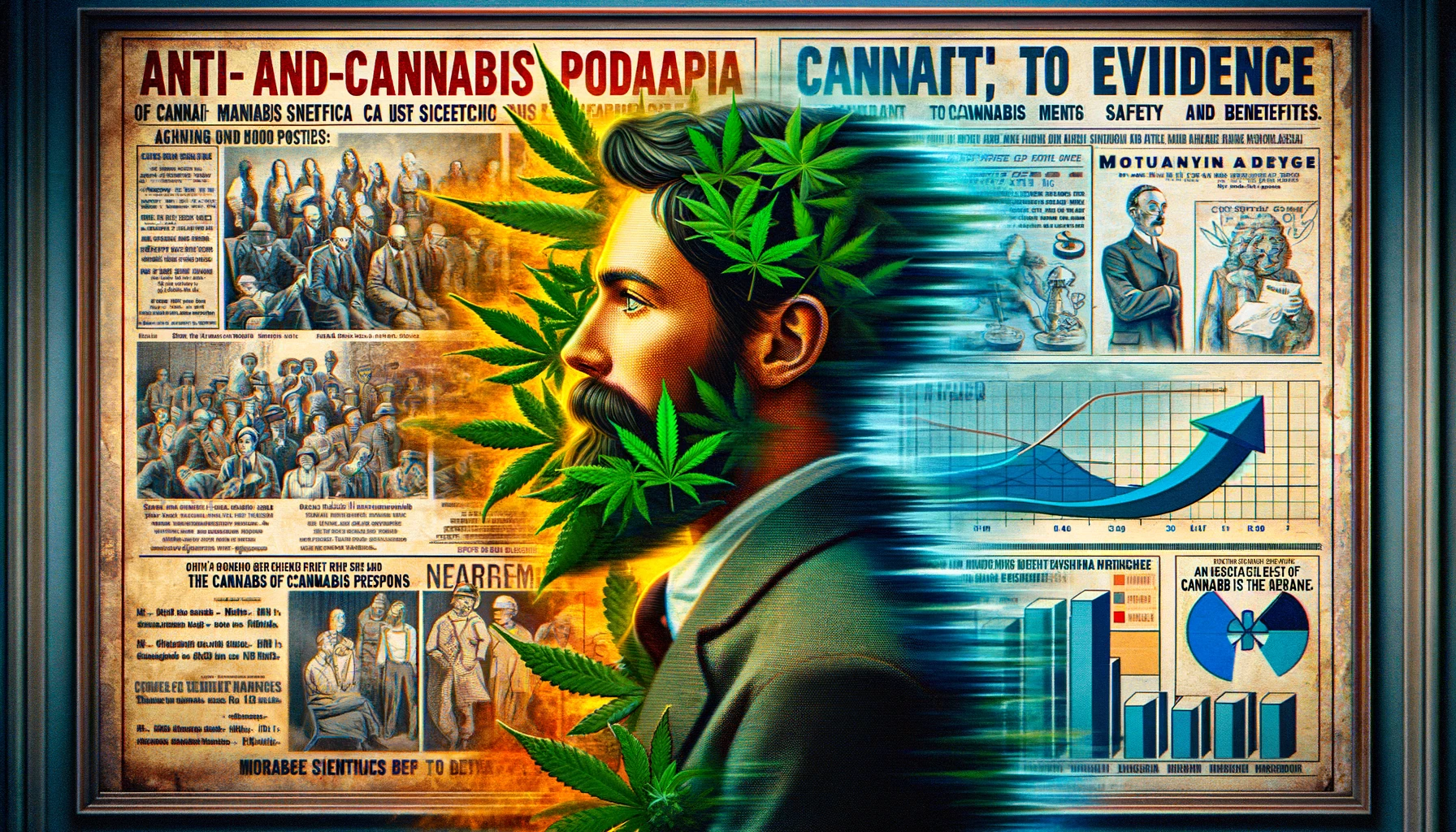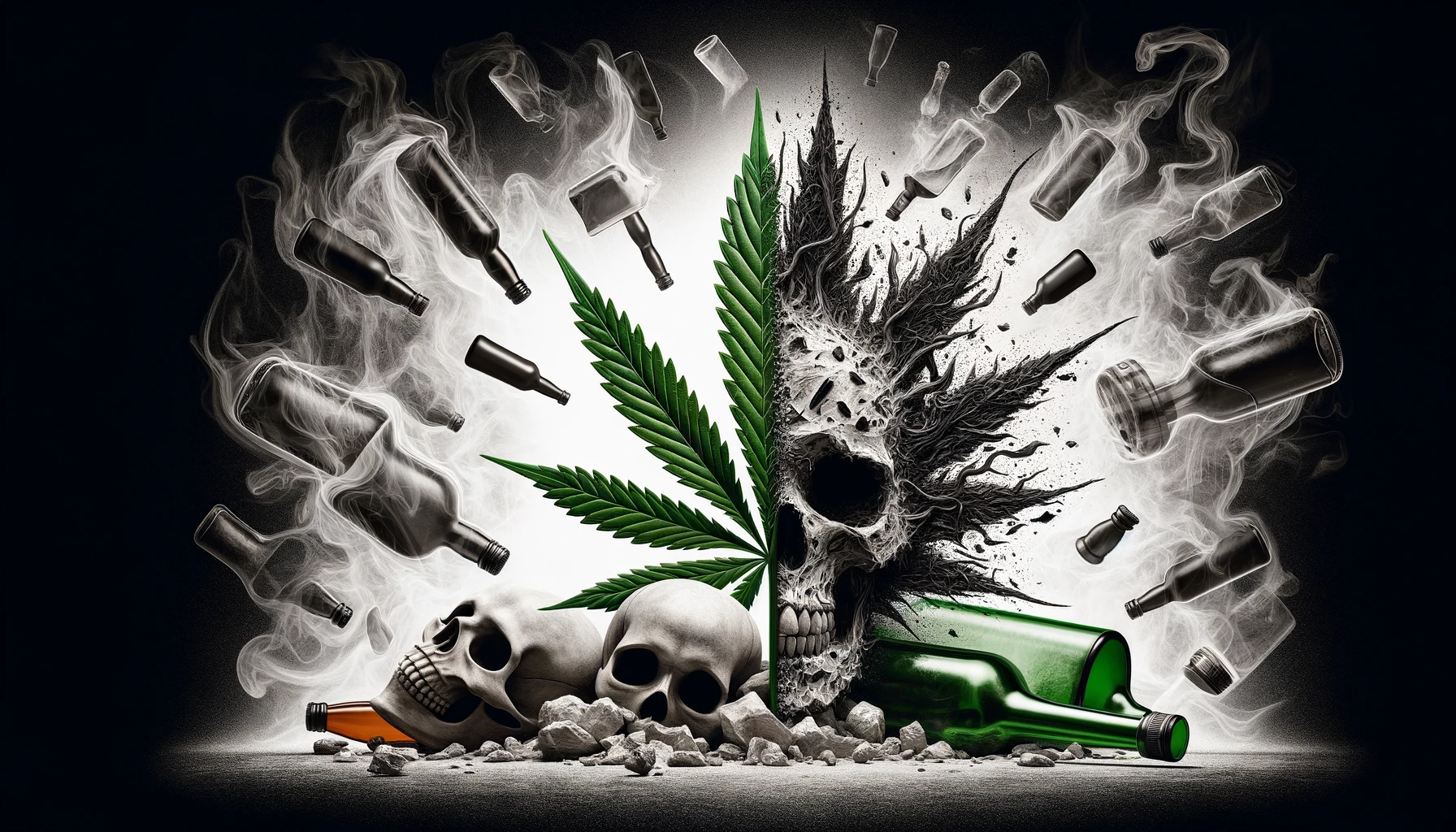It’s hard to believe how past anti-cannabis propaganda, epitomized by films like Reefer Madness, portrayed cannabis as a deadly “killer” drug. However, even decades into the so-called “cannabis epidemic,” there’s not a single official fatality directly linked to cannabis.
Cannabis – Simply Not Toxic Enough to Kill
Judge Francis Young from the US Department of Justice summed up the evidence against cannabis, stating that there has yet to be a fatality from it.
According to Judge Young, for a person to die from THC poisoning, they would need to “consume almost 1,500 pounds of cannabis within about fifteen minutes to provoke a lethal response.”
A Push for Medical Cannabis Legalization
After this assessment by the Chief Administrative Law Judge of the Drug Enforcement Administration, it was recommended in 1988 that medical marijuana be legalized.
Although this recommendation was denied, cannabis was made available for prescription for treating diseases like Multiple Sclerosis and nausea in cancer patients undergoing chemotherapy. However, even after more than three decades, many American patients still do not have access to medical cannabis.
Judge Young also dismissed as “specious” (plausible but false) the argument that using cannabis as medicine would promote its use as a recreational drug.
Can Cannabis Make You Dumb?
It is impossible to die from THC toxicity without consuming an inconceivably vast quantity of it.
Critics of cannabis argue that even if it doesn’t kill you, it can at least make you dumb or slow – medically speaking, cause an increased cognitive impairment.

This was investigated in the following study, which involved 1,318 individuals over a period of 12 years. All the individuals were under 65 years old, and the study was published in the American Journal of Epidemiology. The conclusion was:
“There were no significant differences in cognitive decline among heavy users, casual users, and non-users of cannabis.
There were also no differences between men and women in terms of cognitive decline in relation to cannabis use.
The authors concluded that over long periods, in individuals under 65 years of age in all age groups, a cognitive decline occurs. This decline is closely associated with aging and level of education but does not appear to be related to cannabis.”
Cannabis – The Slow Demise of Anti-Cannabis Propaganda
For many years following the initial spread of anti-cannabis propaganda, cannabis was associated with death and mental destruction.
However, there’s no evidence to support the claim that cannabis possesses sufficient toxicity to cause death.
Medical Usage of Cannabis
Studies show that one can consume cannabis without inflicting irreversible damage to the mind and body.
Medical usage of cannabis was legalized for the first time in California in the mid-nineties. Since then, anti-cannabis prohibitionists have been scouring state data for any signs of issues.
Everything from mental health statistics to car accident data has been thoroughly examined.
The Reality of Cannabis Consumption
Yet, no compelling argument has materialized to demonize or outlaw cannabis. Humans have consumed cannabis on a large scale for thousands of years without it causing any problems.

The demonization of cannabis is a modern phenomenon. In fact, many now believe that cannabis is no longer the deadly drug it was once portrayed as but rather a means to escape drug addiction and assist individuals in their recovery from opiates.
Cannabis – An Exit Drug, Not an Entry One
The anti-cannabis propaganda has always tried to portray cannabis as an entry drug. However, as prejudices make way for scientific insights, a new and fundamentally different role emerges.
The Opiate Issue
Opiate abuse and opiate-related deaths are highly epidemic at any given time. In the United States alone, opioids take the lives of tens of thousands each year. Hundreds of thousands are addicted, possibly millions. Many believe societal opiate abuse was fueled by pressure from pharmaceutical companies.
Cannabis; A Solution?
Yet, individuals experiencing opiate withdrawal symptoms have heavily utilized cannabis.
Breaking free from opiates is challenging due to their highly addictive nature – a fact well known by pharmaceutical companies when considering future profits.
Cannabis doesn’t make the withdrawal process from opiates easier, but many report it makes the process less difficult. Furthermore, cannabis itself is an effective painkiller, providing a safe alternative to opiates.
Cannabis Overdose is Unlikely – Alcohol Kills 3 Million Every Year
There have been no recorded deaths from a cannabis overdose. According to the World Health Organization, alcohol is responsible for 5% of all deaths – a staggering statistic. Each year, 3 million people die from alcohol.

The Harmful Effects of Alcohol
Overdosing on alcohol can easily cause death. A bottle or two of vodka from your local supermarket would suffice. Alternatively, alcohol can gradually weaken the body and organs, leading to death through various long-term effects including cirrhosis of the liver.
The Irony of Societal Acceptance
While society debates the legalization and safety of cannabis for decades, the government-sanctioned legal alcohol industry continues to kill millions and compromise the health of tens of millions more. One of the great ironies of modern society is how cannabis has been demonized. Yet, the real killers are substances that society has seemingly fully accepted such as alcohol, tobacco, and opioids.
It is virtually impossible to fatally overdose on cannabis due to its low toxicity. Massive amounts, far beyond human consumption capabilities, would be required.
Cannabis is significantly safer than alcohol, which is linked to millions of deaths per year. Cannabis has no recorded fatalities directly attributed to its use.
Cannabis is increasingly viewed as a helpful aid in managing withdrawal symptoms from opiates and is considered a safer pain relief option compared to addictive opiates.
This belief is largely based on outdated propaganda. Current research suggests that cannabis can serve more as an exit drug, helping people reduce dependence on more harmful substances.
Studies have shown no significant cognitive decline associated with cannabis use compared to non-users, debunking the myth that cannabis causes cognitive impairment.









